The passing of an icon, we’ll miss you David Bowie
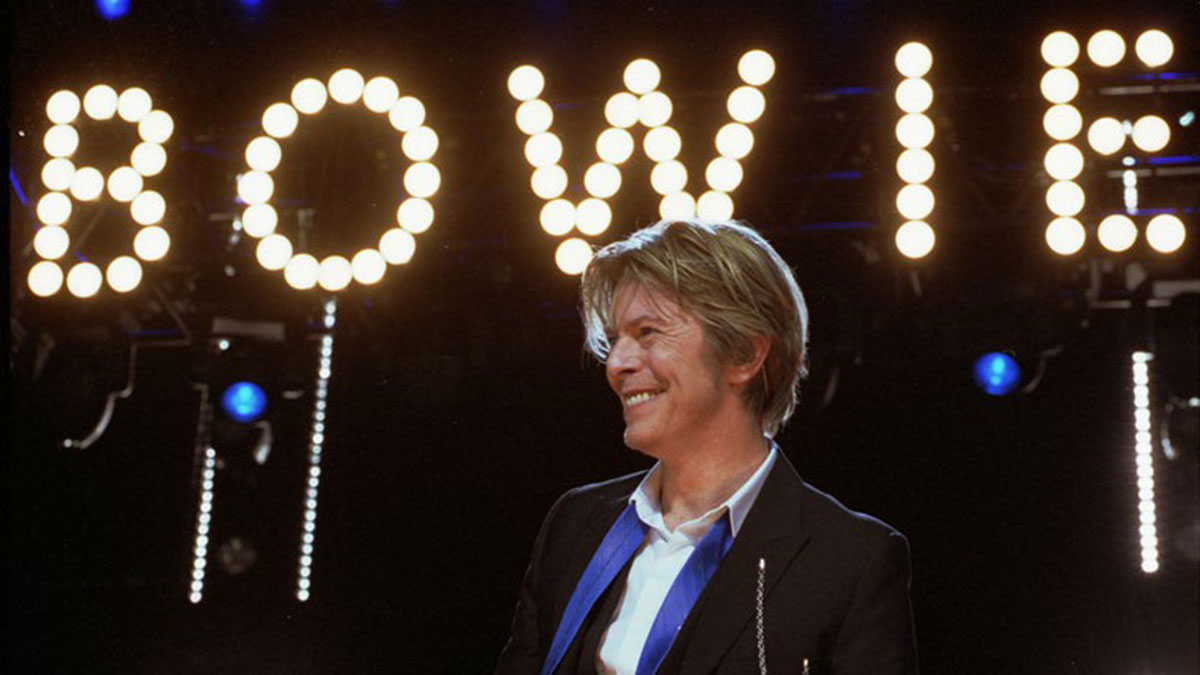 Supplied – Adam Bielawski
Supplied – Adam BielawskiDavid Bowie.
A man of intrepid force with a presence like no other artist. He challenged the notion of pop music and influenced an entire generation of artists to do the same. Back in a more conservative time, he singlehandedly challenged the notion of gender presentation and hypermasculinity.
Through his 26 studio albums, Bowie never lost momentum and constantly pushed the envelope in terms of creative expression and quality music production. He passed away on the evening of January 10, 2016, from an 18-month battle with cancer. At 69 years old, he was creating music until the day he died, having released a music video the day before for his new album, Black Star. David Bowie lived first and foremost for his fans and for his passion for creating music.
Bowie was an eccentric new perspective to the rock scene. His second studio album Ziggy Stardust and the Spiders from Mars catapulted him to instant success with hits like “Ziggy Stardust,” “Space Oddity,” and “Starman.” His concept-type albums and multiple personas created a live performance and stage presence like no other. His androgynous, flamboyant personas of Ziggy Stardust and Aladdin Sane were prevalent over the years in his recorded and live work. During his shows, he would cross dress and embody these personas, while engaging with the audience and dancing in a provocative, innovative way. While he challenged hypermasculinity and gender expression, people from all over the world saw him as an icon. Coming out as queer in the 70s, he was one of the first artists to be openly queer; this inspired many to follow in his footsteps and be their authentic selves.
Following his death, people all over the world regarded him as their first queer icons, and admitted that Bowie gave them the strength and courage to try new things, to be authentic, and in some cases, to continue living. David Bowie saved them, in many nuanced ways, with his music and with his courage to be himself.
Throughout the 70s and 80s, David Bowie created hit after hit, with 1973 album Aladdin Sane, 1977s Heroes, 1983s Let’s Dance. He released his first greatest hits album Changes in 1990 and did not lose steam, producing albums up until his death. His persona may have shifted over the years, but his impact stayed constant throughout his life. David Bowie was one of the most influential and important artists of all time, and his legacy lives and breathes through his music. Although the passing of David Bowie is an immense loss, he continues to live through his music and the impact he made on the world. He is not gone from our lives.
In the words of the man himself, “I don’t know where I’m going from here, but I promise it won’t be boring.” David Bowie was indeed, not boring and he will continue to be an otherworldly phenomena. Rest easy among the stardust, Ziggy. You will be dearly, profoundly missed.
Bowie’s dominance and consistency through the 70s and 80s
Hunky Dory — 1971
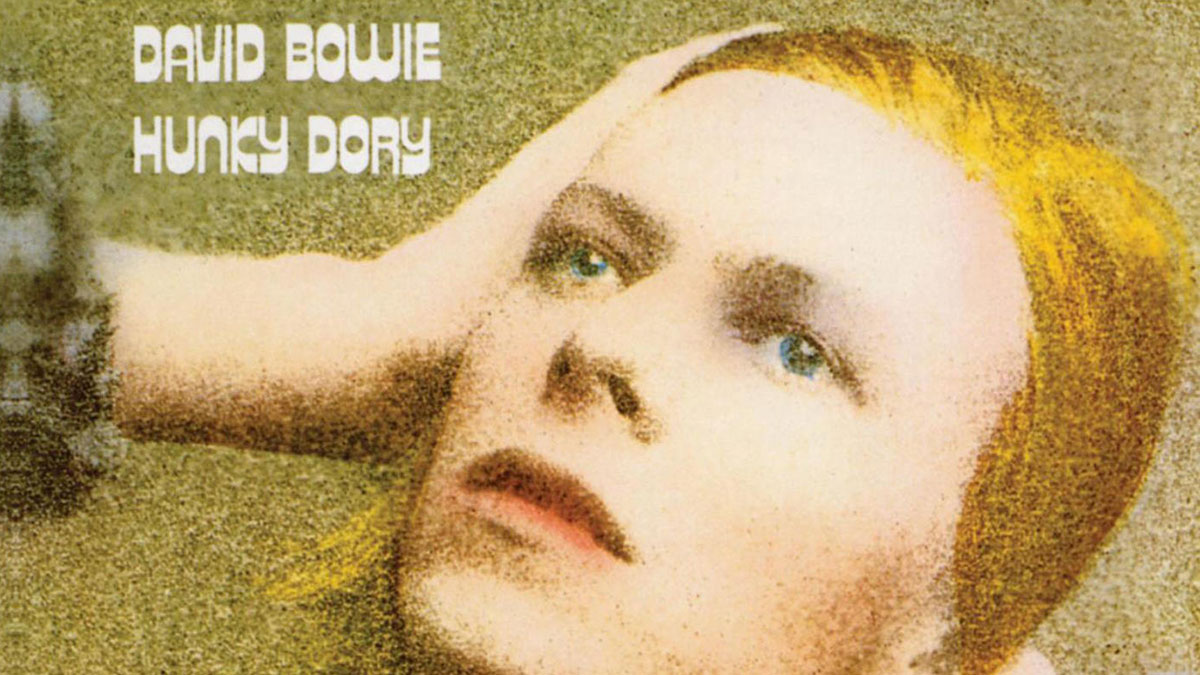
Released in 1971, Hunky Dory was one of Bowie’s first offerings to the world. Exploding onto the world stage in the form of dreaming pop riffs, catchy choruses, and heartfelt piano, Hunky Dory is filled with hits that pervade modern culture even forty-five years later. Perhaps two of Bowie’s most well- known early tracks, “Changes” and “Oh! You Pretty Things”, open this album with a mix of soulful guitar and easy-listening accessibility. Hunky Dory demonstrated, among other things, a great understanding of what it took to create a pop hit. Its release marked the beginning of Bowie’s commercial success, elevating his career to a point where he could begin to tackle the more ambitious and experimental projects he would later become known for. This album stands as the foundation for the house of Bowie’s career, without such a solid set of building blocks, his career may never have evolved into the glamorous abstract art piece we know it as today.
The Rise and Fall of Ziggy Stardust and the Spiders from Mars — 1972
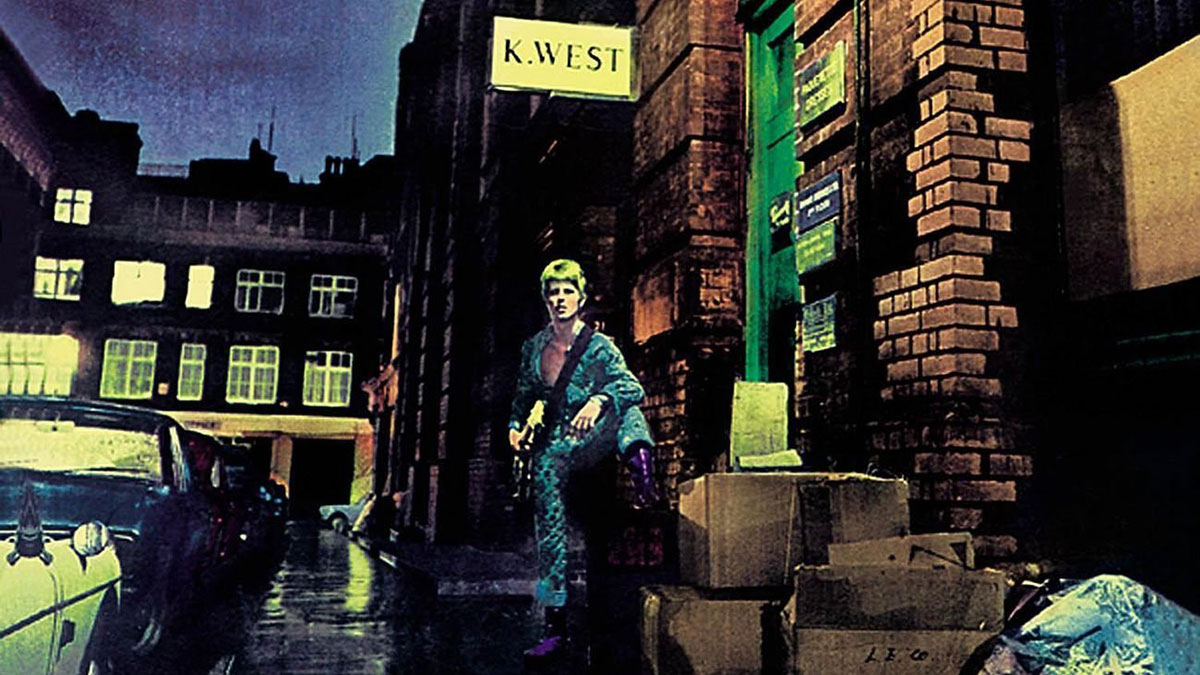
Despite there being less than a year between the release of Hunky Dory and The Rise and Fall of Ziggy Stardust and the Spiders from Mars the two albums share almost no stylistic or musical similarities. Ziggy Stardust served as Bowie’s fist major expedition into the depths of glam-rock, as well as the idea of concept albums. Glistening synths appearing in the background of most tracks, heavy modulation often effecting Bowie’s voice. However, ever innovating, Bowie didn’t stay within the usual confines of glam-rock, incorporating soulful bass lines and even a horn section into multiple tracks across the album. Ziggy Stardust was conceived from the invention of Bowie’s alter-ego of the same name; this persona would go on to become known as one of Bowie’s most contrived and influential artistic offerings. Ziggy Stardust was a major commercial success for Bowie, proving that experimentation and risk-taking were worth it, allowing further — and weirder — artistic expression in the years that followed
Aladdin Sane — 1973
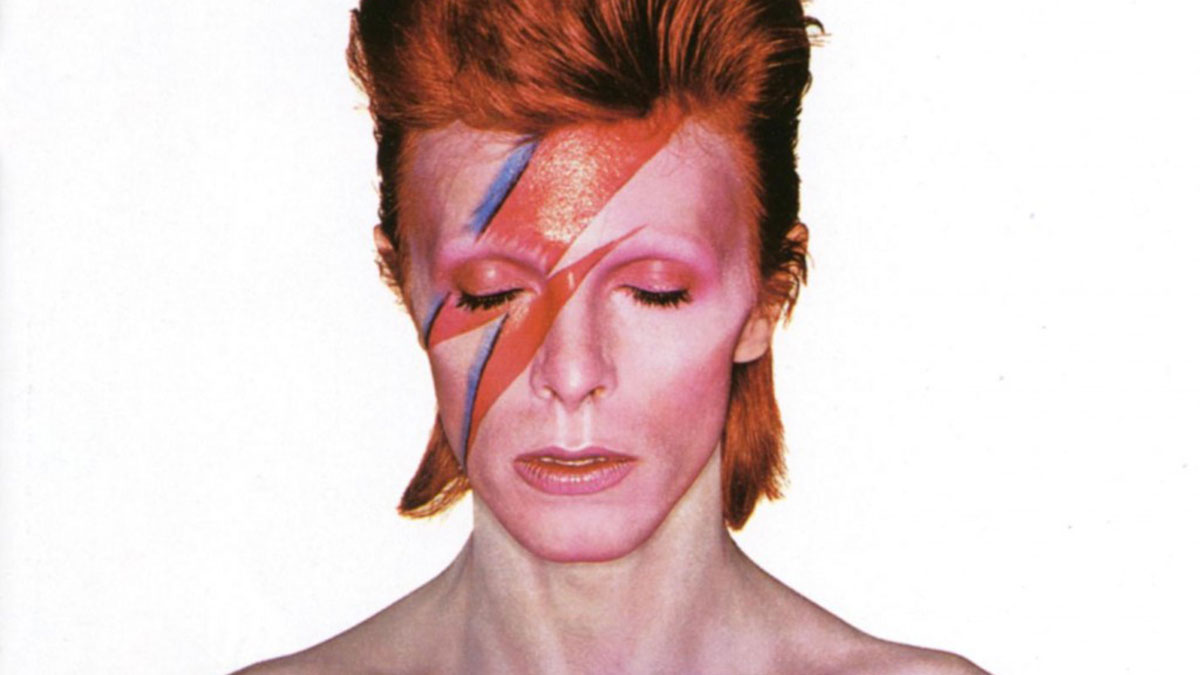
Prior to the release of Bowie’s sixth studio album, Aladdin Sane, Bowie had achieved international Rockstar status based on the success of previous albums. Riding on his recent success, Bowie made a departure from the glam-rock stylings he had become known for, instead pursuing a sound that can only be described as pure rock-and-roll. While this departure was unpopular with fans at the time of the album’s release, looking back, it’s easy to see the importance of this album as a noted turning point in Bowie’s career. Aladdin Sane was less of a concept album than Ziggy Stardust, and featured very little of the pop exploration found on Hunky Dory. Instead, Aladdin Sane served as a symbol of Bowie’s artistic evolution, one where, upon gaining fame, he no longer had to rely on the shock-and-awe of glam rock, instead resting upon the laurels of classic rock-and-roll. An album does not have to be exceptional to be influential; such is the case with Aladdin Sane. It’s important, when looking back, to note major turns in style and substance of an artist’s work; Aladdin Sane most notably fulfills that requirement.
Heroes — 1977
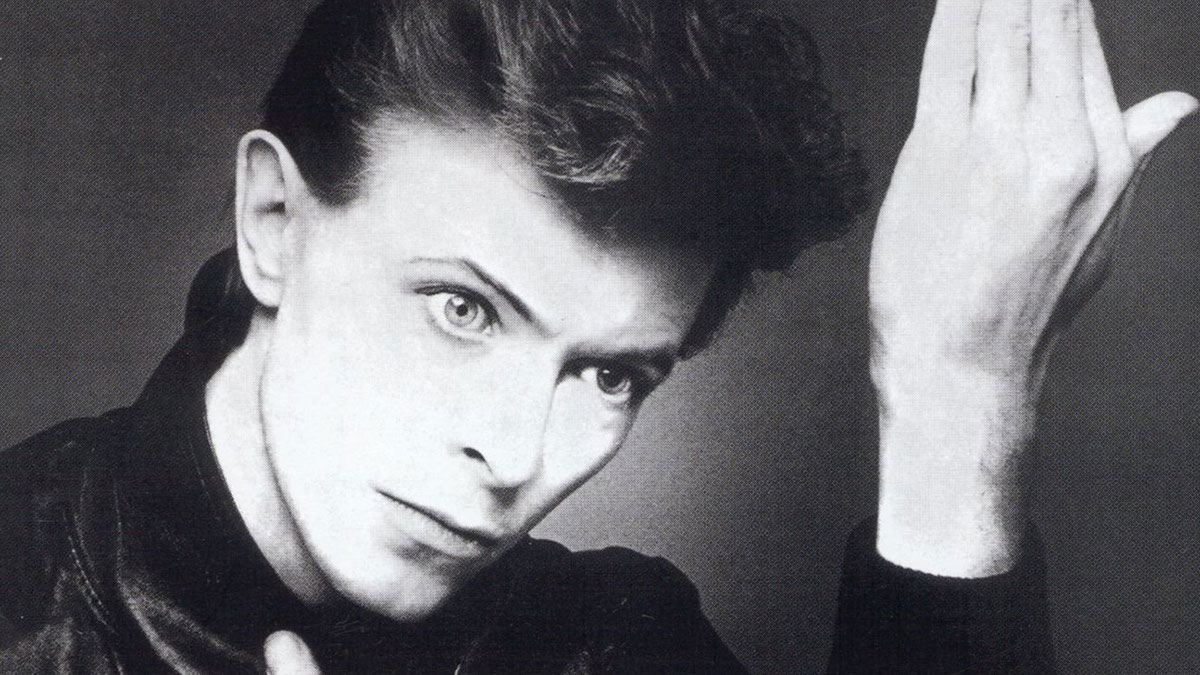
Jump forward four years since the release of Aladdin Sane, Bowie has been touring and writing endlessly. Along comes Heroes, an emotionally vulnerable and artistically charged album that excelled equally at expressing style and substance. Utilizing a broad range of atmospheric effects and instrumental modifiers, Heroes was grounded in a sound that defined the experimentation culture of the 70s. Written as part of the three album Berlin Trilogy, Heroes expressed a greater level of social commentary than pervious albums, with common themes surrounding the existence of the Berlin Wall. This album worked to showcase, above all, Bowie’s talent as a songwriter, with all lyrics appearing on the album credited to him. Heroes is full of life, yet exists within a state of wistful sadness. Bowie’s wailing vocals mark a more emotionally exposed artist, one who is, perhaps, more willing to be vulnerable within the safety net of fame. David Bowie was undoubtedly the musical king of the 70s blazing through his own artistic progression and releasing more albums than there were years in the decade.
Let’s Dance — 1983

Perhaps Bowie’s most well known album, “Let’s Dance” marked the end of his reign over the international pop scene that spread from the early 70s to the mid 80s. Let’s Dance is arguably the most accessible album ever release by Bowie, oftentimes falling back on easy pop riffs and catchy lyrics to be more appealing to a wide audience. Artistically, Let’s Dance showcased the end of an era, one where Bowie was free to experiment and freely innovate without fear of commercial retaliation. With a release that was arguably more about style than substance, Bowie had seemingly surrendered to commercial interest and made an album for the masses. Make no mistake; Let’s Dance was still a musical powerhouse, featuring unforgettable tracks like “Little China Girl”, and the title track, “Let’s Dance”. While a noted departure from Bowie’s previous releases, Let’s Dance was critically acclaimed and commercially successful, cementing Bowie forever among pop-music legends.




